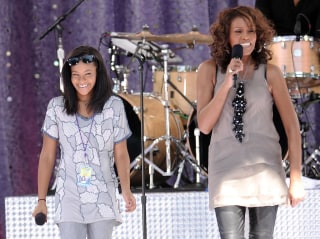
By the time the curtain fell on the 7th session of Nigeria’s National Assembly in June, one of the most prominent characters of that era, who retreated backstage as a member of the 8th session (after his party became a minority), is former Senate President, David Mark.
Mr. Mark, a retired army general, would be remembered for his ignoble role in deepening and institutionalising the culture of secrecy at Nigeria’s federal legislative body.
In 2003, total National Assembly budget was about N23.347 billion.
The next year, the figure rose to about N32.229 billion (2004) and then N55.422 billion in 2005.
Although the figure dropped to N39.810 billion in 2006, the allocations have remained on the upswing ever after.
Immediately Mr. Mark became Senate President in 2007, the National Assembly’s budget rose from N66.488 billion to a shocking N104.825 billion in 2008, before dropping marginally to N96.052 billion in 2009.
By 2010, while he was still in charge, the allocation had a geometric jump, skyrocketing to unprecedented levels to a peak of about N154.2 billion.
With the Nigerian public increasingly scrutinizing the spiraling annual allocations to the National Assembly, questions about why the lawmakers got so much, amid rising overheads in the national budget, became inevitable.
To block Nigerians from knowing details of how the National Assembly’s jumbo allocations are spent, and how much lawmaker’s earn in allowances, Mr. Mark’s leadership wrapped up the federal legislator’s finances in utmost secrecy.
In one master stroke of legislative brinkmanship, the National Assembly budget, hitherto open to public scrutiny, like those of all ministries, departments and agencies, suddenly became secret.
Details of the allocation were never made known, and Mr. Mark and his team resisted all efforts to pry it open.
By 2010, the National Assembly legislated to make itself member of an exclusive club of agencies whose budget details are never disclosed but whose finances are deducted en-bloc (first-line charge) via statutory transfers.
This group includes the Independent National Electoral Commission (INEC), the National Human Rights Commission (NHRC), the National Judicial Council (NJC), the Niger-Delta Development Commission (NDDC) and the Public Complaints Commission (PCC).
Agencies in this group receive their annual budgetary allocations in bulk without providing breakdown of expenditure details.
Under Mr. Mark’s leadership, details of the National Assembly’s N150 billion allocations remained secret, despite public outcry against it.
For the first time in several years, the federal lawmakers agreed to cut their jumbo allocation by 23.3 percent to N115 billion in 2015.
Yet, details of how the fund would be spent remained secret.
Disturbed by the trend, the Lead Director, Centre for Social Justice (CENSOJ), Eze Onyekpere, citing the Freedom of Information Act and Section 48 of the Fiscal Responsibility Act, demanded budgetary and expenditure details from both the National Assembly and the Federal Ministry of Finance.
When Mr. Mark failed to grant the request, Mr. Onyekpere went to court.
After several adjournments, the court, on February 25, 2014, ordered the Minister of Finance to oblige the civil society group with details of all statutory transfers.
But Mr. Mark and the finance ministry ignored the order.
The closest anyone got to knowing how lawmakers spend Nigeria’s hard-earned money was the indication given by Governor of the Central Bank of Nigeria (CBN) and current Emir of Kano, Lamido Sanusi.
Mr. Sanusi had said expenses by the National Assembly accounted for about 25 percent of the total overhead cost by the federal government.
Apart from allocations for salaries and allowances, Mr. Sanusi said all other items packed under different sub-heads in the appropriation bill consist mainly of expenses on the personal benefits of lawmakers.
According to the former CBN boss, the National Assembly under Mr. Mark perfected a curious system of “retiring” the huge allocation.
“There is an entire structure within the National Assembly whose job is to prepare different receipts and vouchers to cover every item in the budget,” Mr. Sanusi had said.
A review of the details of the National Assembly budget for 2009 highlights some items the lawmakers spend their huge annual budget on.
Out of a total appropriation of N106.64 billion for that year, recurrent expenditure was N101.39 billion, or 95 percent, allowing just N5.25 billion for capital projects.
Under the recurrent, overheads accounted for N87.69 billion, or 86.48 percent, with personnel cost allocated N13.69 billion, or 13.52 percent.
Apart from payment of salaries and other fringe benefits, which takes an average of about N10 billion, Mr. Sanusi said the bulk of the allocations were shared among members according to pre-agreed formula after allocations for such items as constituency projects, budget tracking, software, hardware, implementation and monitoring; NASS equipment; judgment debt; renovation projects; general goods and non-personal services; general travels and transport (local and international) as well as general training.
Other provisions include general utilities; general materials and supplies; general maintenance services; security vote, consultancy and professional services; insurance premium charges; fuel and lubricants; contingency; NASS programmed activities, NASS law magazine; media and Public Relations as well as miscellaneous expenses.
Mr. Mark stepped down from the leadership of the National Assembly in June. He would most likely be remembered more for the lack of accountability under his watch.
From: http://www.premiumtimesng.com/
 The African Diplomatic Group has condemned the terror attacks carried out by the Boko Haram sect in parts of the country.
The African Diplomatic Group has condemned the terror attacks carried out by the Boko Haram sect in parts of the country.

 By the time the curtain fell on the 7th session of Nigeria’s National Assembly in June, one of the most prominent characters of that era, who retreated backstage as a member of the 8th session (after his party became a minority), is former Senate President, David Mark.
By the time the curtain fell on the 7th session of Nigeria’s National Assembly in June, one of the most prominent characters of that era, who retreated backstage as a member of the 8th session (after his party became a minority), is former Senate President, David Mark.